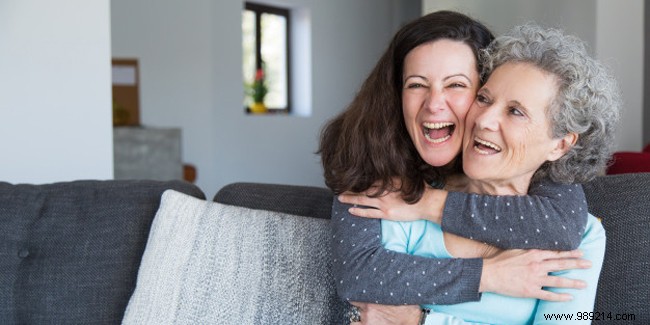
Although the vast majority of elderly people want above all to age in their own home, the loss of autonomy most often leads to their placement in an accommodation establishment for dependent elderly people (Ehpad). Many seniors, however, are reluctant to enter this type of nursing home. So what are the other possible solutions for a dependent senior? Examples of host families and grouped housing.
For dependent seniors, one of the alternatives to nursing homes is foster care. This is a system that allows an elderly person to be welcomed into a family, and to participate in its life, in return for remuneration which includes the cost of the services provided by the host family, maintenance and accommodation. This solution can be temporary, part-time, full-time or permanent. Host families are also aimed at senior couples.
The “family caregiver” can be a single person or a couple. He must have been approved by the services of the department where he resides, and these services regularly check the reception conditions for seniors. The latter must ensure the health, safety, physical and moral well-being of the people received. Family carer approval is granted for 5 years and is renewable.
In a host family, the dependent senior has a single room of at least 9 m 2 for a single person (16 m 2 for a couple), with a window that gives direct access to the outside of the house, and which is located near a bathroom and toilet. The elderly person in foster care also has free access to the common rooms of the house. In this way, she is fully integrated into the life of the family. The latter can set up medical solutions that are perfectly adapted to dependent seniors.
Very many seniors want to continue to live in conditions that resemble their life at home as much as possible. However, their dependence obliges them to have to be surrounded, in any case to have to benefit from care or special support.
Grouped housing, also called beguinage or inclusive housing, turns out to be a good alternative for dependent elderly people who do not wish to enter an Ehpad, and who can no longer live alone at home. This solution is aimed at all seniors, dependent or not.
Indeed, grouped housing, most often managed by associative structures, designates the possibility of continuing to have an individual life while taking advantage of the advantages of living in a community in the presence generally of 10 to 15 other inhabitants in the same situation. The senior has a private residence as owner, tenant or co-tenant, and shares common premises with other residents. Depending on his state of health, he can request personalized health, social or medical services, such as home help and support services, home nursing services (SSIAD), or multipurpose home help and care (SPASAD).
A shared social life project is also one of the characteristics of this type of housing for the elderly. Its purpose is to promote "living together" to limit the risk of isolation of the inhabitants, to develop collective life within the habitat, or to allow the inhabitants who can to integrate into the life of the neighborhood and the municipality, to deploy or maintain social ties, with the neighborhood for example.
For the same purpose, grouped housing always offers places of residence close to transport, shops or other services.